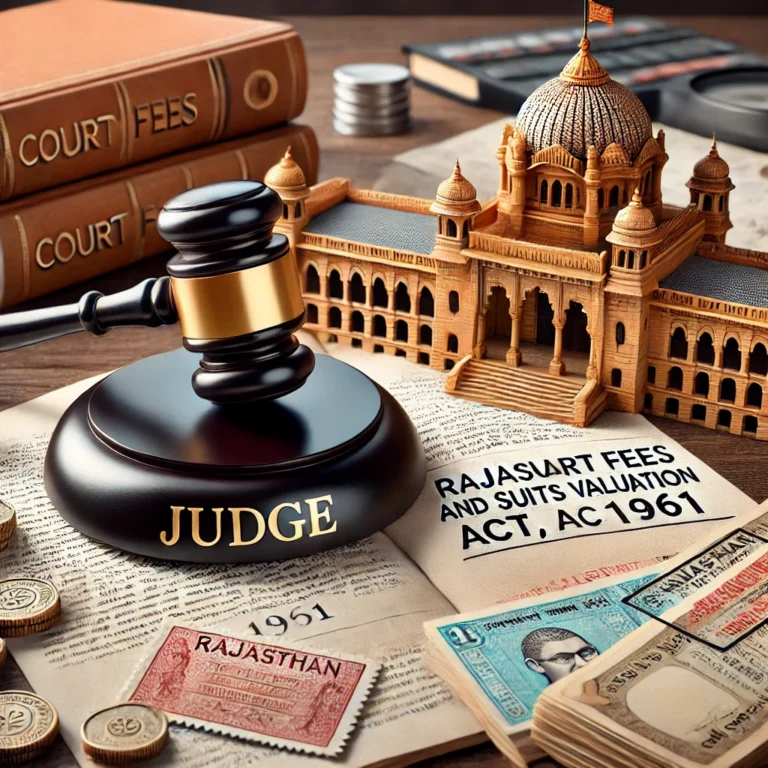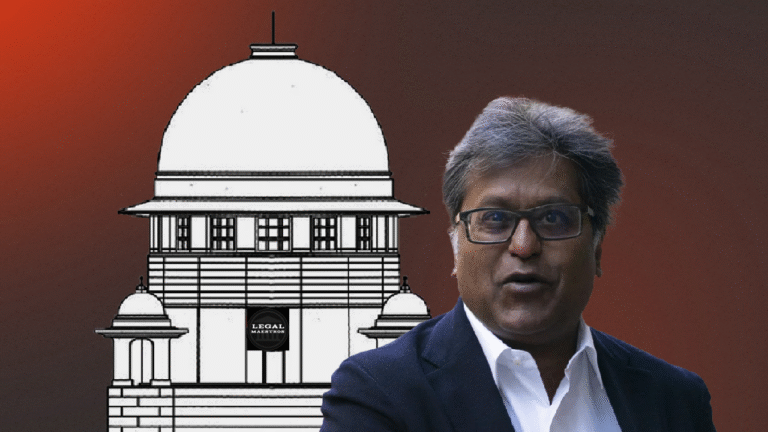
Understanding Administration and Cancellation Suits in Rajasthan (Section 37 & 38 of the Rajasthan Court Fees and Suits Valuation Act, 1961)
The Rajasthan Court Fees and Suits Valuation Act, 1961, lays down particular court fee rules in administration suit cases and decree or document cancellation cases. Such provisions assist in establishing the amount a plaintiff or defendant should pay when such legal cases arise.
Court Fees in Administration Suits (Section 37)
Where an application for suit for administration of an estate is presented, the court fee shall be paid according to the scale laid out in Section 45 of this Act. If, in the course of the case, a share in the estate or some sum is ascertained to be due to the plaintiff, no final decree shall be issued or payment made until the court fee shall be cleared in full.
For instance, if someone sues for the management of a dead person’s property and afterwards lays claim to a ₹10 lakh share, but the original court fee was paid on a lower amount, then they will have to pay the difference first before they are awarded their share.
For More Updates & Regular Notes Join Our Whats App Group (https://chat.whatsapp.com/DkucckgAEJbCtXwXr2yIt0) and Telegram Group ( https://t.me/legalmaestroeducators ) contact@legalmaestros.com.
If a defendant also asserts rights to a share in the estate, they must have paid the court fee due so that the court can adjudicate over their claim or issue any payments. But if the plaintiff or defendant has already paid a court fee for the same claim but in a different case, this will be taken into account, and they will only have to pay the remaining difference.
For More Updates & Regular Notes Join Our Whats App Group (https://chat.whatsapp.com/DkucckgAEJbCtXwXr2yIt0) and Telegram Group ( https://t.me/legalmaestroeducators )
Court Fee in Case of Cancellation of Decrees and Documents (Section 38)
When an individual wishes to cancel a money or property decree, or any document impacting ownership rights, the court fee is calculated according to the property value or the decree value.
If a person wants to cancel a whole decree or document, the court fee is determined on the total amount of money or property involved. For instance, if a person wishes to cancel a sale deed of a property valued at ₹15 lakh, the court fee will be computed on ₹15 lakh.
Where a part of the decree or document alone is questioned, the court fee is payable on the value of that particular part. For example, where an individual contests only ₹5 lakh of a ₹20 lakh decree, the court fee is computed on ₹5 lakh.
Where a decree or document pertains to more than one asset, but the plaintiff sues only for a particular property or share, the court fee is payable as per the price of the particular property or share, whichever is less. If a person wishes to rescind an agreement concerning only their one-third share in a shared property worth ₹9 lakh, the fee will be calculated on ₹3 lakh.
The legislation also makes it clear that a suit to set aside an award (e.g., an arbitration award) is considered a suit to cancel a decree, and thus the same rules of court fees will be applicable.
Conclusion
The Rajasthan Court Fees and Suits Valuation Act, 1961, provides that court fees for administration and cancellation suits are reasonable and depend on the valuation of the claim. It is helpful to learn about such regulations in order to prepare for legal proceedings against estates and property disputes.






